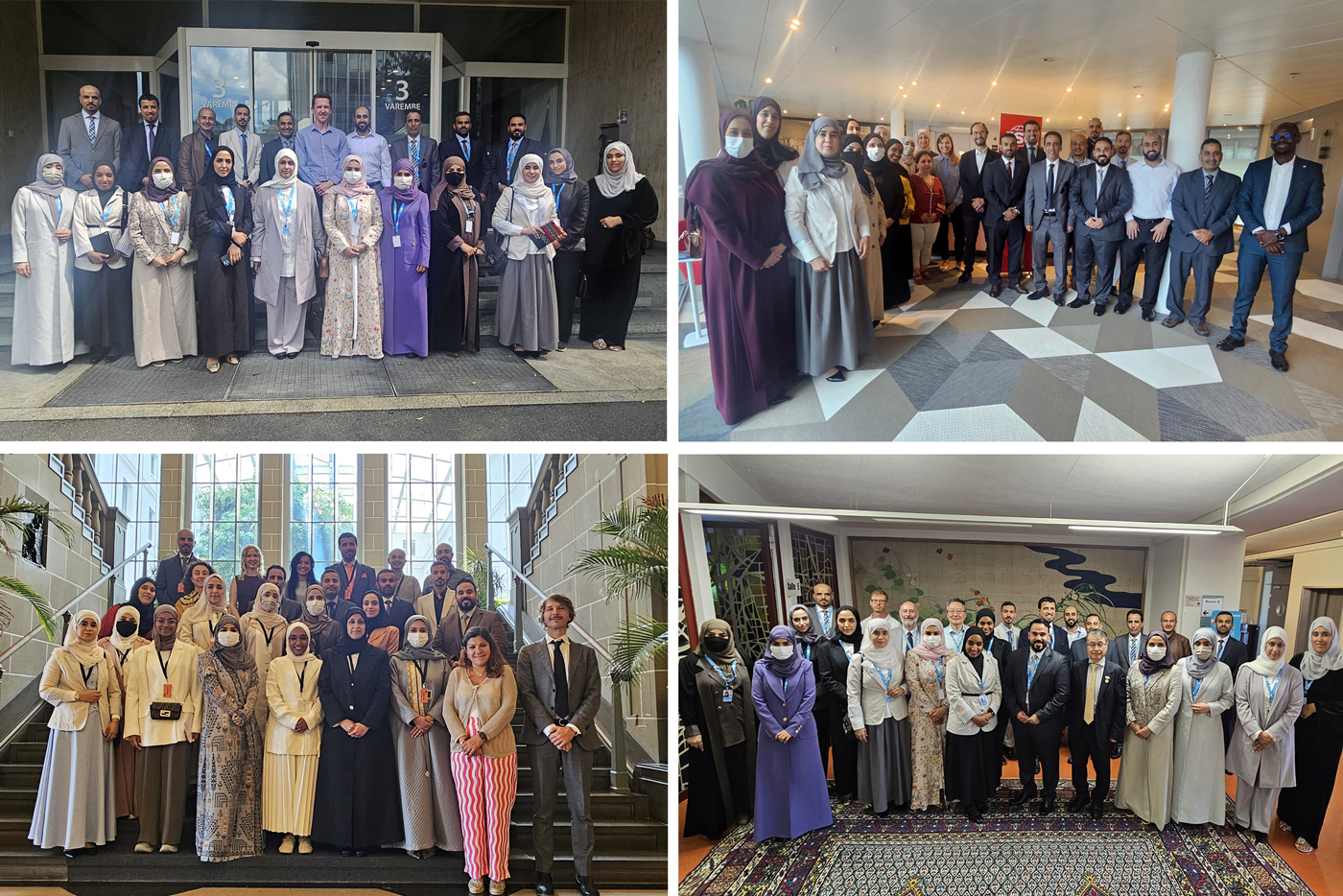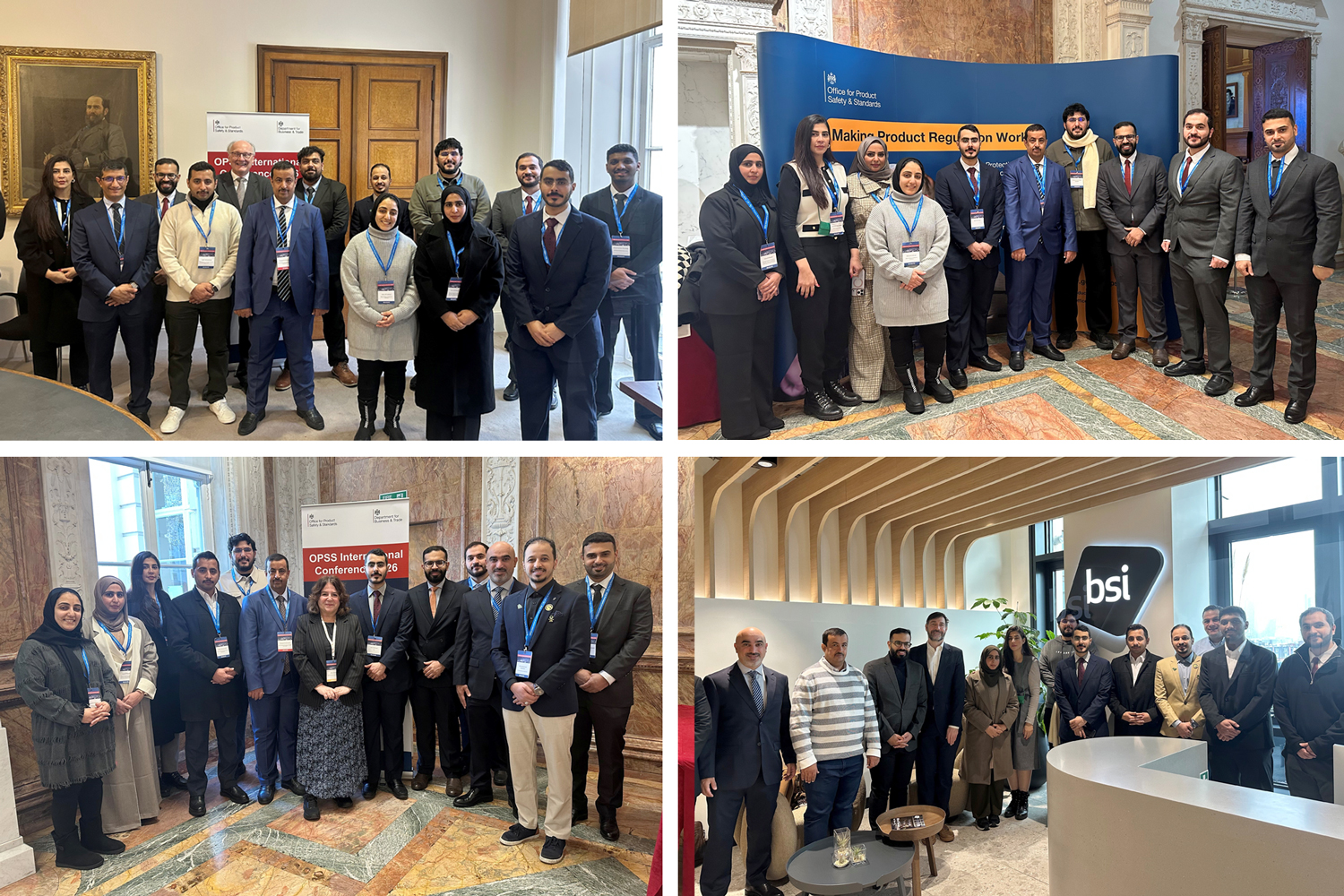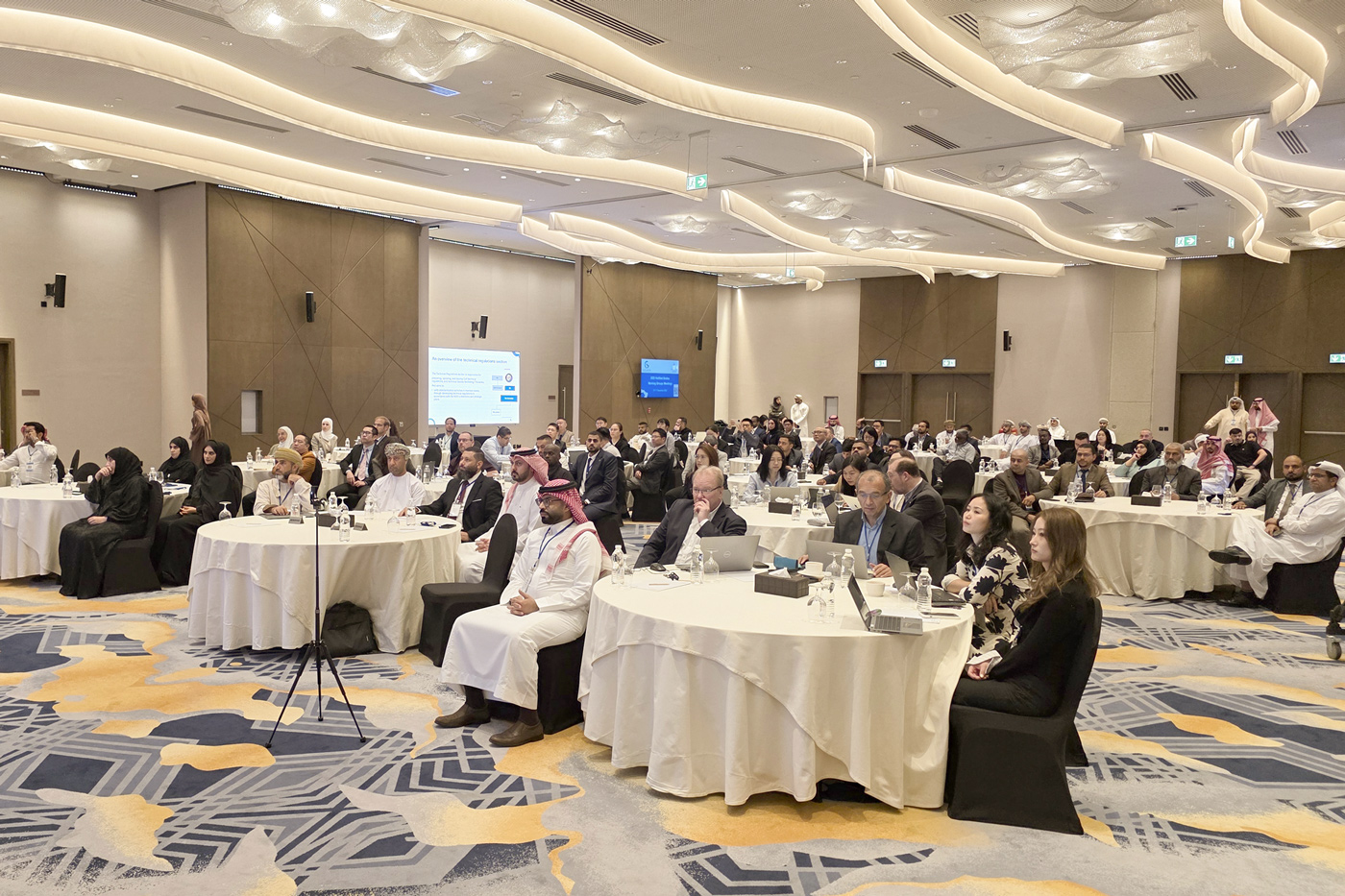GSO Organizes Study Visits to the International Standardization Organizations in Geneva

The GCC Standardization Organization (GSO) organized, through the Gulf Standardization Training Center, a program of study visits to a number of prominent International Standardization Organizations as part of its annual training plan for 2025. The visits covered the International Organization for Standardization (ISO), International Electrotechnical Commission (IEC), International Telecommunication Union (ITU), and World Trade Organization (WTO), during the period from 14 to 17 July 2025 in Geneva, Switzerland.
The program included participation from representatives of national standardization bodies across GSO Member States, along with specialists from the GSO Secretariat. The visits featured interactive sessions with experts from the respective organizations, focusing on best practices in standardization systems, the development of smart standards, Young Professionals programs, strategic directions, as well as discussions on Technical Barriers to Trade (TBT) and Sanitary and Phytosanitary (SPS) measures.
At the ITU, H.E. Mr. Seizo Onoe, Director of the ITU Standardization Bureau, welcomed the delegation and emphasized the importance of the visit in strengthening cooperation between ITU and the GSO Member States, building on GSO’s membership in the ITU and the cooperation agreement signed between both parties.
Mr. Hiroshi OTA, ITU’s Visit Coordinator, welcomed the GCC delegation, saying: “It was a pleasure to receive the GSO delegation at ITU Headquarters on 14 July 2025. The meeting proceeded smoothly, and the discussions were enriched by valuable questions and inputs from the GCC participants, making the meeting interactive and fruitful.”
From IEC, Mr. Dennis Chew, Regional Coordinator, thanked GSO for organizing the visit, highlighting it as a key milestone in ongoing cooperation under the existing Memorandum of Understanding (MoU) and Regional Adoption Agreement. He emphasized that the visit enabled meaningful capacity building through direct dialogue and knowledge exchange.
ISO Secretary General, H.E. Mr. Sergio Mujica, praised the distinguished relationship between ISO and GSO, noting the increasing role of GSO Member States in global standardization governance, including participation in ISO Council and Technical Committees. He reaffirmed ISO’s commitment to deepening cooperation with GSO, within the framework of the (MoU) signed between ISO and GSO. He stressed the importance of strengthening this partnership in supporting ISO regional policy to promote standardization and quality, which contributes to consumer protection, environment and health, and facilitate trade exchange
Commenting on the visit, Dr. Kenza Arfi-Le Mentec, Head of the Regional Office for Central and Eastern Europe, Central Asia, the Caucasus, the Arab States and the Middle East – WTO Institute for Training and Technical Cooperation, hailed the visit, and said: “This visit was an excellent initiative by GSO, and the session at WTO headquarters was very interactive, as our experts had the opportunity to discuss practical issues related to SPS measures, TBT and related transparency requirements. The session was also a valuable opportunity to build a network between the GCC delegation experts and the Technical Secretariat experts, paving the way for future direct cooperation on implementation issues.”
On his part, H.E. Eng. Nawaf bin Ibrahim Al-Mana, GSO President, affirmed that these visits align with GSO’s strategic direction to build human capital and empower technical specialists in Member States through structured knowledge-sharing and international cooperation. He emphasized that such initiatives strengthen the Gulf standardization system, enhance the quality of technical outputs, and reinforce the implementation of MoUs and cooperation agreements with international organizations.
His Excellency also announced that these study visits and field training initiatives will continue an annual basis and on a broader scale, covering diverse areas such as standards, conformity assessment, metrology, laboratories, and emerging technologies related to quality and standardization.



